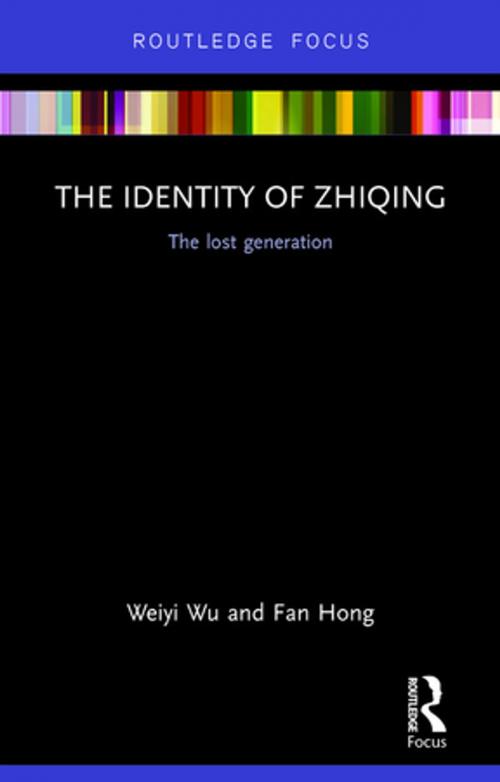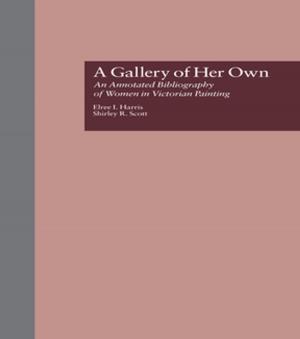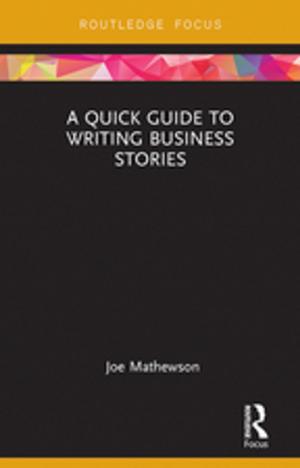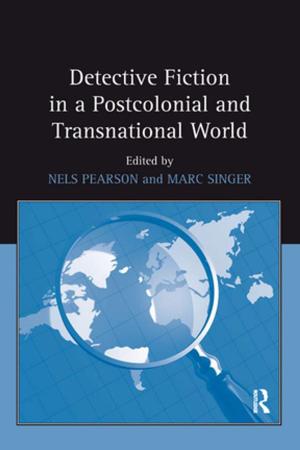The Identity of Zhiqing
The Lost Generation
Nonfiction, History, Asian, Asia, China, Modern, 20th Century| Author: | Weiyi Wu, Fan Hong | ISBN: | 9781317391913 |
| Publisher: | Taylor and Francis | Publication: | March 2, 2016 |
| Imprint: | Routledge | Language: | English |
| Author: | Weiyi Wu, Fan Hong |
| ISBN: | 9781317391913 |
| Publisher: | Taylor and Francis |
| Publication: | March 2, 2016 |
| Imprint: | Routledge |
| Language: | English |
Outside China, little is known about the process and implications of the Up to the Mountains and Down to the Countryside (UMDC) Movement, a Chinese state policy from 1967 to 1979 in which more than 16 million secondary school-leavers in different cities were relocated to rural areas. The Movement shaped the lives of these young people and assigned them a shared group identity: Zhiqing, or the Educated Youth.
This book provides new research on Zhiqing, who were born and brought up after the establishment of the People’s Republic of China and regarded as a lost generation during the Cultural Revolution. Presenting a remembrance of their tortuous life trajectories, the book investigates their distinctive identity and self-identification. Unlike earlier historical approaches, it does this from a social psychological perspective. It is also unique in its use of first-hand materials, as individuals’ memories and reflections collected by in-depth interviews are compiled and presented as Zhiqing’s self-portrait. This innovative research offers an informative and profound induction of the topic and also contributes to the development of contemporary Chinese studies by laying the foundation for a specialized Zhiqing study.
Combining rich empirical research with a strong theoretical perspective, this book will be invaluable to students and scholars of Chinese history, sociology, anthropology and politics.
Outside China, little is known about the process and implications of the Up to the Mountains and Down to the Countryside (UMDC) Movement, a Chinese state policy from 1967 to 1979 in which more than 16 million secondary school-leavers in different cities were relocated to rural areas. The Movement shaped the lives of these young people and assigned them a shared group identity: Zhiqing, or the Educated Youth.
This book provides new research on Zhiqing, who were born and brought up after the establishment of the People’s Republic of China and regarded as a lost generation during the Cultural Revolution. Presenting a remembrance of their tortuous life trajectories, the book investigates their distinctive identity and self-identification. Unlike earlier historical approaches, it does this from a social psychological perspective. It is also unique in its use of first-hand materials, as individuals’ memories and reflections collected by in-depth interviews are compiled and presented as Zhiqing’s self-portrait. This innovative research offers an informative and profound induction of the topic and also contributes to the development of contemporary Chinese studies by laying the foundation for a specialized Zhiqing study.
Combining rich empirical research with a strong theoretical perspective, this book will be invaluable to students and scholars of Chinese history, sociology, anthropology and politics.















